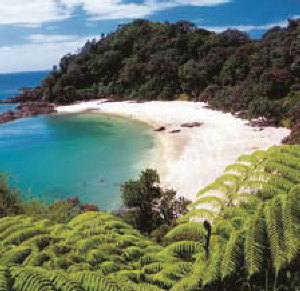Investing in holiday dreams
Time away in an attractive destination gives the idea of owning a holiday home powerful allure, but their investment credentials are far from established.
Tuesday, January 19th 2016, 1:00PM
by Miriam Bell

As the summer holidays wind down, many people will be back at work but still dreaming of lazy days at the beach, fishing on a lake or enjoying the vineyards of a wine district.
This frame of mind – which tends to follow any fun-filled or relaxing vacation, be it sun-drenched or snow-covered - can prompt a decision to prolong the magic through investment in a holiday home.
It might be easy to justify the purchase of a seaside bach in the Coromandel or a chalet in Wanaka when still in holiday mode.
But do holiday homes really stack up as an investment?
Bachcare managing director Leslie Preston said that, traditionally, the returns on holiday homes were always capital gains rather than cash flow.
Following the GFC, capital growth in the holiday homes market disappeared and the advent of services like Bachcare and Bookabach shifted the focus to cash flow prospects.
Now the holiday homes market has picked up again and some popular holiday destinations are seeing good capital growth, Preston said.
For example, the Mt Maunganui and Papamoa market is strong – partly due to the influx of Auckland investors into the Tauranga market.
Alternatively, some holiday homes, particularly those in two season markets, can provide decent cash flow returns for investors, Preston said.
Strong domestic and international tourism means that holiday home occupancy rates are currently high, which is good for cash flow.
“But an investor would have to understand the dynamics of the area they are interested in, as well as what a good rental is before buying.
“So, if they managed to get a well-priced deal somewhere within a two hour radius of a major city which is configured for 8 to 10 people, they could make that property work well for them.”
She pointed to Taupo as a destination which could tick all the boxes.
“It’s popular as a holiday spot all year round. Plus it’s an equal distance from both Auckland and Wellington, so it attracts people from both cities.”
For an investor to make a holiday home property work, it is necessary to ensure the property is extremely well-managed, if not professionally managed, Preston added.
Many others take a less positive view of holiday homes as an investment.
Property Institute chief executive Ashley Church said purchasing a holiday home tends to be a dog as an investment decision.
“They are a luxury. People buy them and justify their decision on economic grounds when it is actually a decision based on the lifestyle factors.”
In his experience, people initially plan to rent out such properties but they quickly tire of the effort and work involved in fast turnover holiday rentals – which is more than that required for standard rental properties.
“If people are genuinely buying for investment, to generate wealth, why buy a property which doesn’t provide a regular income? Why not go for a rental property that gives you a reliable income and some capital growth?”
Essentially, holiday homes are a frivolous investment, Church said.
“It’s easy to understand why people do it and why they want to do it. But they have to be honest about their reasons.
“Whether they are looking for cash flow or capital growth, there are much better ways of investing to grow their wealth.”
| « Profits take flight with Airbnb | Free Investment Property Showcase Events: Auckland, Wellington and Christchurch » |
Special Offers
Comments from our readers
No comments yet
Sign In to add your comment
| Printable version | Email to a friend |



